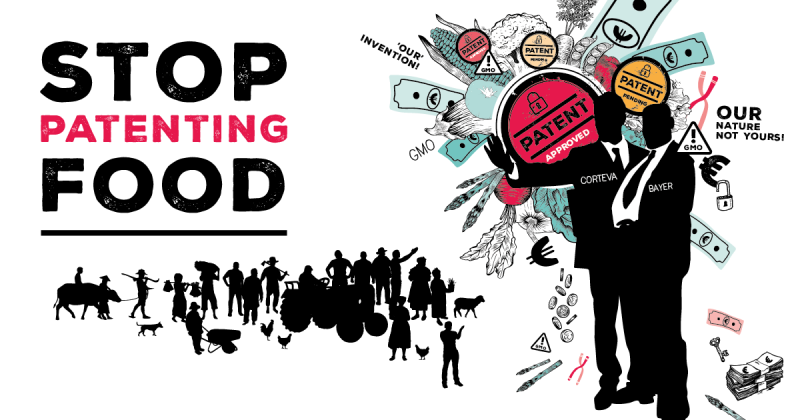
Exposed: How biotech giants use patents and new GMOs to control the future of food
Exposed: How biotech giants use patents and new GMOs to control the future of food
Big global biotech corporations like Bayer and Corteva, which together already control 40% of the global seed market, are dangerously trying to reinforce their monopoly and threatening food security. A group of seed saving, environmental and consumer organisations, including Corporate Europe Observatory, reveals how these companies seek to increase their control over the future of food and farming by extensively patenting plants and developing a new generation of genetically modified organisms (GMOs).
Read the media briefing here
Read the full report here
Patents on plants and other living organisms have been controversial for decades and restrict farmers’ access to seeds. They also impede breeders from developing urgently needed plants adaptable to climate change.
Global biotech leaders Bayer and Corteva (formerly Pioneer Dupont) own extensive patent portfolios on new GMO techniques, often referred to as genome editing, including CRISPR-Cas. These corporations are moving to patent plant genetic information that can occur both naturally or as a result of genetic modification - claiming all plants with those genetic traits as their “invention”.
Corteva has applied for some 1430 patents on new GMOs, while Bayer/Monsanto has applications for 119 patents. By claiming exclusive rights on their “inventions”, they directly contradict their lobbying claims that new GMOs are as safe as natural plants and that therefore the EU should exclude them from the safety checks and labelling requirements provided by the current GMO legislation.
For instance, Corteva holds a patent for a process modifying the genome of a cell using the CRISPR technique and claims the intellectual property rights to any cells, seeds and plants that include the same genetic information, whether in broccoli, maize, soy, rice, wheat, cotton, barley or sunflower.
The organisations call for decision makers to safeguard food crops from being patented and stop the current abuse of the European patenting regulations. They also demand that all GMOs, old and new, be properly regulated with premarket authorisation, labelling and safety checks to protect human health and the environment.
